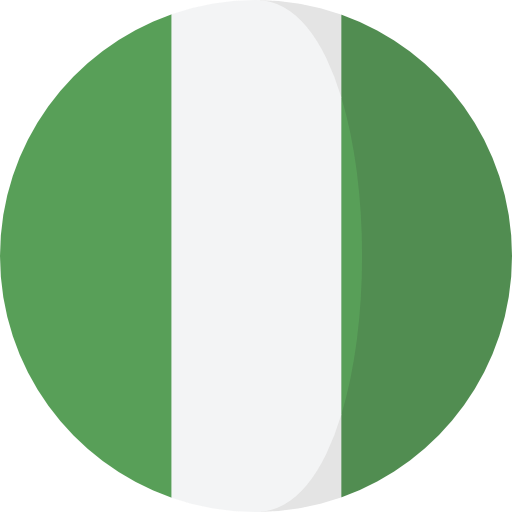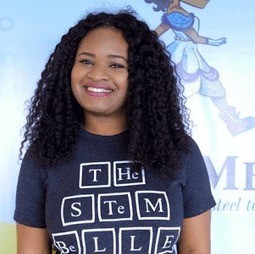What is your educational background?
I studied Agriculture at Ahmadu Bello University, Zaria – Nigeria, for my Bachelors, and I majored in Animal Science. I graduated from ABU- Zaria in 2012, completed the compulsory National Youth Service Scheme in 2014, and in 2015 I started my Master’s degree in Animal Science at the University of Ghana, Ghana. I graduated from my Master’s degree in 2017, and in the same year, I moved to the United Kingdom to begin a PhD in Animal Science at The University of Nottingham.
What is your current occupation?
I am a PhD student at the University of Nottingham, where I am investigating the relationships between hen performance and egg quality and safety traits of individual ISA Brown hens. I am also the founder and program director of The STEM Belle, a non-profit initiative that is re-calibrating female representation in STEM fields by attracting, retaining and advancing girls from low-income communities into STEM subjects and careers.
What or who got you into STEM?
My parents both inspired me into STEM. At a young age, I started assisting my dad at his Pharmacy store, and I had dreams of becoming a Pharmacist. My mom always told me about the diverse job opportunities in STEM fields, so I kept my dreams alive. Eventually, my dreams evolved, and I am now an Animal Scientist and I absolutely love it.
What is the biggest challenge/barrier you have faced as an African in STEM?
First, I would say is stereotypes! As a girl/ woman, I always heard people say things like: Women shouldn’t do this, women shouldn’t do that. It’s going to be difficult for you to find a man and you will be lonely later in life. This can be very discouraging, and negatively defining to many. I was lucky not to hear this from my parents, but in my work and experience, not many people are that fortunate.
Second, would be access to opportunities and information. The sad truth is, there is not a lot of opportunities to encourage career growth and development in STEM in Africa, and this is worse for women. From limited access to STEM mentors, to lack of access to funds for STEM research, it’s a whole spectrum and the normal African is left to find his or her feet in STEM all by him or herself.
How do you think your background/upbringing has been beneficial in your journey/career?
I had parents who believed that we could be everything and anything. My mom, from a very early stage, started telling me and my siblings about the career opportunities available in STEM fields, and encouraged us to explore subjects in science class. As an assistant at my father’s business, I learnt very early about medicines, pharmaceuticals and a bit about the medical profession. I also started gaining marketing, management, communication and STEM entrepreneurial skills, which are now very useful to me today. Due to my parent’s positive influence, all my siblings took up careers in STEM fields, so that was also a source of support and encouragement for me too, because I always had like minds around me.
How do you think we can start to change the narrative surrounding African contributions
to global STEM research & careers?
First, we need to start talking more. We all need to start sharing our success and very importantly our progress (or failure) stories. There is a lot of uncertainty with Science and especially research, but if we talk more about the highs and lows, the younger generation will see that we have all gone through the same loop, they will appreciate the process of attaining heights in science, and will be determined to push until they win. Secondly, we need to make sure we can be seen. Let the young rural girl whose only dream is to get married at age 13 see us doing amazing stuff in Science. Let her mother see us too and her father also. This will challenge and encourage them to reach for their full potential.
If women in science and the work that we do are seen and heard, decision-making positions, leadership positions and other opportunities will be entrusted to us. In summary, African women in STEM need to be seen and to be heard.
What advice would you like to give to young, aspiring Africans in STEM?
Do not limit yourself. There is no box. You can be everything; in stilettos and in steel toes.
Do you have any projects you’re working on that you would like us to highlight?
Yes. I have founded an organization called ‘The STEM Belle‘, as a vehicle to close the gender gap in STEM fields. We create awareness about the diversity of STEM and career opportunities available in STEM, we organize mentorship sessions and project-based STEM training sessions in schools, we give out academic awards to high performing female students and have developed a kit to help reduce the cost of studying STEM in senior secondary schools. At the STEM Belle we target female students in public schools and also schoolteachers in public schools from low income communities and the initiative as a whole has impacted over 4000 school girls and 18 school teachers.







